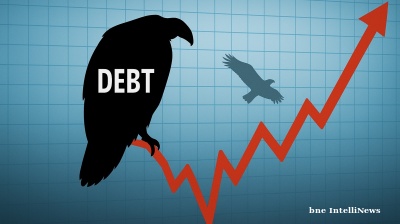TURKEY INSIGHT: Lira back under pressure as Erdogan’s geopolitical woes mount and economic recovery looks strained
.jpg)
The Turkish lira was back under pressure on December 18, hitting its weakest level against the dollar in more than two months with a 0.6% decline that took its 2019 loss to 11%.
“[The lira is] not liking all this flux in the U.S.-Turkey relationship [and] the sense I think in markets is that sanctions are still coming down the pipe on Turkey from Congress,” said Timothy Ash of BlueBay Asset Management.
By around 18:30 on December 18, the Turkish lira (TRY) was trading at 5.92 against the USD.
Other readings from the volatile Turkish markets—also nervous at the tactics used by the Erdogan administration in its attempts to credit-fuel an acceleration in the recovery of Turkey’s recession-ailed economy—included the main Istanbul main share index falling 0.45% in early trade and the yield on the benchmark 10-year bond decreasing to 12.44% on December 17 from 12.52% on the previous day.
“Too complacent”
Credit Agricole Guillaume Tresca was cited by Bloomberg as saying markets have been “too complacent” on Turkey, with an increasing risk that Turkish assets will give up gains in 2020, after high real rates of return made its currency an attractive carry trade this year.
“Given all the pending risks, carry is not enough to take a long-term position in Turkish assets,” said Tresca, a senior emerging markets strategist. “The second half of 2020 could prove to be more challenging as we expect the government’s credit growth strategy to exacerbate macro imbalances and the CBRT [Central Bank of the Republic of Turkey] to be slow to react.”
One advantage Turkish strongman Recep Tayyip Erdogan has in his battles with the US Congress over issues including his invasion of northeast Syria, acquisition of Russian military hardware seen as a threat to Nato systems and contested claims on gas and oil in the eastern Mediterranean is that he has the ear of US President Donald Trump. To date, it is likely that meaningful sanctions from Washington would have hit Ankara if Trump had not got in the way and there was further evidence of the enduring Erdogan-Trump cordial relationship this week when Trump refused to include in White House policy a resolution from the Senate recognising mass killings of Armenians by the Ottoman Empire during and after WWI as genocide.
US election danger
However, any market player looking to take medium to long term positions on Turkey must by now be keenly aware that the November 2020 election would prove bad news for Erdogan and Turkey should a Democrat replace Trump. This approaching critical juncture is coming into view as analysts digest signs of nascent weaknesses in Turkey’s economic recovery. Policy makers may be forced to further boost stimulus at the expense of the lira and the recent slowdown in inflation.
As things stand, Erdogan could also be forced to turn to Trump to block another threat from the Senate, namely a provision in its $738bn US defence spending bill that calls for the lifting of an arms embargo on Cyprus—the Turkish president is presently locked in a dispute with the Greek Cypriots over drilling ships sent by Turkey to explore for hydrocarbons in what Cyprus says is its exclusive economic zone. Ankara says Turkey and Turkish Cypriots in the breakaway internationally unrecognised republic of Northern Cyprus have a right to share certain resources offshore from the divided island.
The Turkish foreign ministry has said Congress was adopting an irrational, hostile attitude toward Turkey. Threats from US lawmakers will not stop Ankara taking steps to ensure its national security, they have warned.
Narrowing real rates
Investors in Turkey are now also assessing the effect of narrowing real interest rates—they have declined below levels in most peer emerging markets given that since Erdogan fired his central bank governor in July for failing to adhere to satisfactory monetary policy, Turkish rate cuts amounting to a cumulative 1,200 bp, taking the benchmark rate to 12%, have been brought in. Annual inflation stood at 10.6% in November, thus the real rate stands at about 1.4%.
Some analysts believe Turkey will avoid punitive US sanctions for the foreseeable future, but they are less sure that the central bank will not overcut rates given that Erdogan, who advances an unorthodox economic theory that high rates cause inflation, has promised there will be single-digit rates in 2020.
With the consumer price index back in the double digits, Nigel Rendell, a senior analyst at Medley Global Advisors in London, said that the improvemen in prices has now come to a “stand still.” He added: “As the domestic economy picks up in 2020, fueled by renewed bank credit, any inflation concerns could lead to a sell-off in the bond and currency markets, particularly if this takes place against a background of further declines in the CBRT’s repo rate.”
Another worry for the markets is Erdogan’s offer to send troops to Libya to defend the UN-recognised government there from a rebel assault.
A deterioration in the geopolitical situation, together with the threatened US sanctions, are “the main pending threats that could fuel risk aversion,” Tresca said. “The markets have been too complacent,” he reiterated.
Reviving the economy at a fast rate to rebuild his popularity has become that much more urgent for Erdogan, with two allies-turned-rivals presently putting together new political parties to rival his ruling Justice and Development Party (AKP). It is possible Erdogan could attempt to knock them and other opponents out with risky snap elections if his problems continue to mount but he can achieve at least a short-term economic revival.
Fiscal strains in the attempt at brewing that revival are showing. Excluding an early transfer of funds from the central bank, the state budget gap would have exceeded 4% of GDP in 2019. “The government is intent on reviving growth, which will require fiscal policy stimulus due to banking sector weakness [as a result of poor construction loan quality],” Bloomberg quoted Per Hammarlund, chief emerging markets strategist at SEB in Stockholm, as saying.
Features
_1758174730.jpg)
Indonesia’s Raja Ampat - tourism hub or den of corruption?
In recent years, Indonesia has doubled down on promoting Raja Ampat, a remote archipelago in West Papua famed for its biodiversity, as a global eco-tourism icon.

Flood corruption scandal shakes the Philippines
The Philippines is grappling with a widespread controversy surrounding its flood control programme, with allegations of billions of pesos being siphoned off from projects meant to protect vulnerable communities.

The European Commission proposes to “creatively” tap Russia’s $300bn of frozen assets with Reparation Loans
The European Commission is floating a new idea of how to “creatively” tap Russia’s $300bn of frozen assets without the need to appropriate, which is legally questionable, by replacing the money transferred to Kyiv with EU-backed bonds.

“Yuri Gagarin” cosmodrome seeking a future in space – and tourism
Golden age of spaceport is long over, with Moscow focused on facilities in Russia. Kazakhstan, however, hopes it can find profitable niche in launching satellites.



